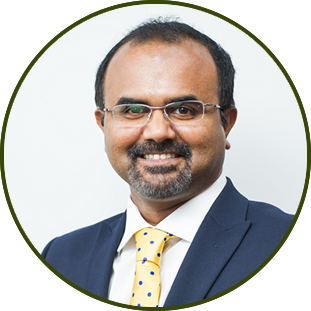Obsessive-Compulsive Disorder (OCD) is a common, chronic and long-lasting disorder in which a person suffering from it has uncontrollable, reoccurring thoughts (obsessions) and behaviours (compulsions). They feel the urge to repeat over and over even though they feel that their behaviour is irrational. Understanding the answer to the question what is OCD is the first step in recognising the problem and getting help.
Everyone double checks things sometimes. But a person with OCD
Can't control their thoughts or behaviours, even when those thoughts or behaviours are recognized as excessive and irrational.
Doesn’t get pleasure when performing the rituals, but may feel brief relief from the anxiety the thoughts cause.
Experiences significant problems in their daily life due to these thoughts or rituals.
It is like a broken Machine. Thoughts go around and round in your head and get stuck.
It sometimes is like having two brains, rational and an irrational brain. They are constantly fighting.

There are four main categories of Obsessive-Compulsive Disorder (OCD), and many sub-types o within each category. Identifying the type of obsessive compulsive disorder can help you to understand its effects. The diagnosis will also guide your treatment. Typically, a person’s OCD will fall into one of the following four areas.
The need to check is the compulsion which usually happens in response to an obsessive fear to prevent damage, Some of the common examples are checking for fear of fire ( leaks of Gas or electric stove knobs),water taps, door locks, home alarms, windows ,house lights or even re-reading postal letters and greetings cards before sealing / mailing ( fearful of writing something inappropriate or offensive).
The checking is often carried out several times, sometimes hundreds of times, and for hours , resulting in the person being late for work, dates and other appointments.
This can often have a serious impact on a person’s ability to hold down jobs and relationships.
The need to compulsively clean and wash in response to the obsessive fear is that something is contaminated and/or may cause illness and ultimately death to a loved one or oneself.
Some of the examples are using public toilets, shaking hands, touching door knobs/handles, using public telephones etc.
The cleaning or washing is often carried out several times often accompanied by rituals of repetitive hand or body washing until the person ‘feels’ it is clean, rather than someone without OCD who will wash or clean once until they ‘see’ they are clean.
It is the inability to discard useless or worn out possessions. There is now significant evidence to suggest that treatment can be just as effective for this type of OCD, as with others.
In the context of OCD, a rumination is a train of prolonged thinking about a question or theme that is undirected and unproductive. Ruminations are not objectionable and are indulged rather than resisted. Some ruminations dwell on religious, philosophical, or metaphysical topics, such as the origins of the universe, life after death etc.
The person with ‘Pure O’ will still have compulsions which mainly manifest as unseen mental rituals, and they will usually also engage in compulsive behaviours like seeking reassurance from loved ones, and avoidance of particular objects, places or people.
Are you a control freak? Do you have a basic pattern of preoccupation with orderliness, perfectionism, mental and interpersonal control at the expense of flexibility, openness and efficiency ? Do you have obsessive-compulsive disorder or obsessive-compulsive personality ? What is OCD doing to your quality of life?
If you suspect that you have obsessive compulsive disorder or your thoughts and behaviours seem out of control, it is a good idea to talk to an expert. Dr Balu will discuss your symptoms with you in order to provide a diagnosis and to understand the triggers and effects.
Treatment can help you to manage your symptoms so that you can recognise and respond to obsessive thoughts appropriately. It can reduce the negative impact that OCD has on your daily life.
Dr Balu may recommend the following as part of your OCD treatment in London:
Everyone with obsessive compulsive disorder is unique, so Dr Balu will create a bespoke approach to OCD treatment in London for you. Talk to us to find out more.
